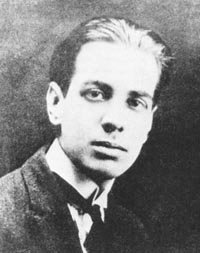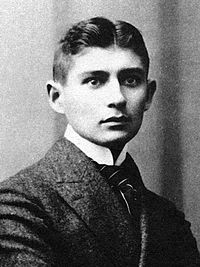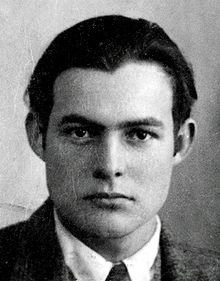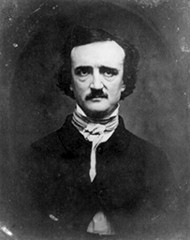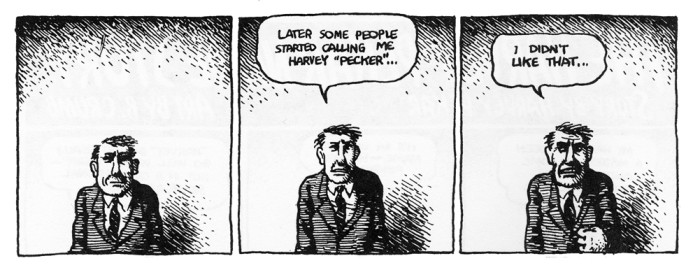Welcome to the Desert of the Real: “On Exactitude in Science”
Jorge Luis Borges
…In that Empire, the Art of Cartography attained such Perfection that the map of a single Province occupied the entirety of a City, and the map of the Empire, the entirety of a Province. In time, those Unconscionable Maps no longer satisfied, and the Cartographers Guilds struck a Map of the Empire whose size was that of the Empire, and which coincided point for point with it. The following Generations, who were not so fond of the Study of Cartography as their Forebears had been, saw that that vast Map was Useless, and not without some Pitilessness was it, that they delivered it up to the Inclemencies of Sun and Winters. In the Deserts of the West, still today, there are Tattered Ruins of that Map, inhabited by Animals and Beggars; in all the Land there is no other Relic of the Disciplines of Geography.
—Suarez Miranda,Viajes de varones prudentes, Libro IV,Cap. XLV, Lerida, 1658
World Wide Web: “The Garden of Forking Paths”
Jorge Luis Borges
On page 22 of Liddell Hart’s History of World War I you will read that an attack against the Serre-Montauban line by thirteen British divisions (supported by 1,400 artillery pieces), planned for the 24th of July, 1916, had to be postponed until the morning of the 29th. The torrential rains, Captain Liddell Hart comments, caused this delay, an insignificant one, to be sure.
The following statement, dictated, reread and signed by Dr. Yu Tsun, former professor of English at the Hochschule at Tsingtao, throws an unsuspected light over the whole affair. The first two pages of the document are missing.
“. . . and I hung up the receiver. Immediately afterwards, I recognized the voice that had answered in German. It was that of Captain Richard Madden. Madden’s presence in Viktor Runeberg’s apartment meant the end of our anxieties and—but this seemed, or should have seemed, very secondary to me—also the end of our lives. It meant that Runeberg had been arrested or murdered.
Performativity: “A Hunger Artist”
Franz Kafka
In the last decades interest in hunger artists has declined considerably. Whereas in earlier days there was good money to be earned putting on major productions of this sort under one’s own management, nowadays that is totally impossible. Those were different times. Back then the hunger artist captured the attention of the entire city. From day to day while the fasting lasted, participation increased. Everyone wanted to see the hunger artist at least once a day. During the later days there were people with subscription tickets who sat all day in front of the small barred cage. And there were even viewing hours at night, their impact heightened by torchlight. On fine days the cage was dragged out into the open air, and then the hunger artist was put on display particularly for the children. While for grown-ups the hunger artist was often merely a joke, something they participated in because it was fashionable, the children looked on amazed, their mouths open, holding each other’s hands for safety, as he sat there on scattered straw—spurning a chair—in black tights, looking pale, with his ribs sticking out prominently, sometimes nodding politely, answering questions with a forced smile, even sticking his arm out through the bars to let people feel how emaciated he was, but then completely sinking back into himself, so that he paid no attention to anything, not even to what was so important to him, the striking of the clock, which was the single furnishing in the cage, but merely looking out in front of him with his eyes almost shut and now and then sipping from a tiny glass of water to moisten his lips.
Message|Mess-Age|Mass-Age|Massage: “An Imperial Message”
Franz Kafka
The Emperor—so they say—has sent a message, directly from his deathbed, to you alone, his pathetic subject, a tiny shadow which has taken refuge at the furthest distance from the imperial sun. He ordered the herald to kneel down beside his death bed and whispered the message to him. He thought it was so important that he had the herald repeat it back to him. He confirmed the accuracy of the verbal message by nodding his head. And in front of the entire crowd of those who have come to witness his death—all the obstructing walls have been broken down and all the great ones of his empire are standing in a circle on the broad and high soaring flights of stairs—in front of all of them he dispatched his herald. The messenger started off at once, a powerful, tireless man. Sticking one arm out and then another, he makes his way through the crowd. If he runs into resistance, he points to his breast where there is a sign of the sun. So he moves forward easily, unlike anyone else. But the crowd is so huge; its dwelling places are infinite. If there were an open field, how he would fly along, and soon you would hear the marvellous pounding of his fist on your door. But instead of that, how futile are all his efforts. He is still forcing his way through the private rooms of the innermost palace. He will never win his way through. And if he did manage that, nothing would have been achieved. He would have to fight his way down the steps, and, if he managed to do that, nothing would have been achieved. He would have to stride through the courtyards, and after the courtyards the second palace encircling the first, and, then again, stairs and courtyards, and then, once again, a palace, and so on for thousands of years. And if he finally did burst through the outermost door—but that can never, never happen—the royal capital city, the centre of the world, is still there in front of him, piled high and full of sediment. No one pushes his way through here, certainly not with a message from a dead man. But you sit at your window and dream to yourself of that message when evening comes.
Adaptation: “The Killers”
Ernest Hemingway
The door of Henry’s lunchroom opened and two men came in. They sat down at the counter.
“What’s yours?” George asked them.
“I don’t know,” one of the men said. “What do you want to eat, Al?” “I don’t know,” said Al. “I don’t know what I want to eat.”
Outside it was getting dark. The streetlight came on outside the window. The two men at the counter read the menu. From the other end of the counter Nick Adams watched them. He had been talking to George when they came in.
“I’ll have a roast pork tenderloin with apple sauce and mashed potatoes,” the first man said.
“It isn’t ready yet.”
“What the hell do you put it on the card for?”
“That’s the dinner,” George explained. “You can get that at six o’clock.”
Crowds: “The Man of the Crowd”
Edgar Allan Poe
It was well said of a certain German book that ‘es lasst sich nicht lesen‘ — it does not permit itself to be read. There are some secrets which do not permit themselves to be told. Men die nightly in their beds, wringing the hands of ghostly confessors, and looking them piteously in the eyes — die with despair of heart and convulsion of throat, on account of the hideousness of mysteries which will notsuffer themselves to be revealed. Now and then, alas, the conscience of man takes up a burthen so heavy in horror that it can be thrown down only into the grave. And thus the essence of all crime is undivulged.
Not long ago, about the closing in of an evening in autumn, I sat at the large bow window of the D — — Coffee House in London. For some months I had been ill in health, but was now convalescent, and, with returning strength, found myself in one of those happy moods which are so precisely the converse of ennui — moods of the keenest appetency, when the film from the mental vision departs — the _____ — and the intellect, electrified, surpasses as greatly its everyday condition, as does the vivid yet candid reason of Leibnitz, the mad and flimsy rhetoric of Gorgias. Merely to breathe was enjoyment; and I derived positive pleasure even from many of the legitimate sources of pain. I felt a calm but inquisitive interest in everything. With a cigar in my mouth and a newspaper in my lap, I had been amusing myself for the greater part of the afternoon, now in poring over advertisements, now in observing the promiscuous company in the room, and now in peering through the smoky panes into the street.
Short Cuts: “Jerry and Molly and Sam”
Raymond Carver
As Al saw it, there was only one solution. He had to get rid of the dog without Betty or the kids finding out about it. At night. It would have to be done at night. He would simply drive Suzy – well, someplace, later he’d decide where – open the door, push her out, drive away. The sooner the better. He felt relieved making the decision. Any action was better than no action at all, he was becoming convinced.
Human|Posthuman: “Axolotl”
Julio Cortázar
There was a time when I thought a great deal about the axolotls. I went to see them in the aquarium at the Jardin des Plantes and stayed for hours watching them, observing their immobility, their faint movements. Now I am an axolotl.
I got to them by chance one spring morning when Paris was spreading its peacock tail after a wintry Lent. I was heading down tbe boulevard Port-Royal, then I took Saint-Marcel and L’Hôpital and saw green among all that grey and remembered the lions. I was friend of the lions and panthers, but had never gone into the dark, humid building that was the aquarium. I left my bike against tbe gratings and went to look at the tulips. The lions were sad and ugly and my panther was asleep. I decided on the aquarium, looked obliquely at banal fish until, unexpectedly, I hit it off with the axolotls. I stayed watching them for an hour and left, unable to think of anything else.
In the library at Sainte-Geneviève, I consulted a dictionary and learned that axolotls are the larval stage (provided with gills) of a species of salamander of the genus Ambystoma. That they were Mexican I knew already by looking at them and their little pink Aztec faces and the placard at the top of the tank. I read that specimens of them had been found in Africa capable of living on dry land during the periods of drought, and continuing their life under water when the rainy season came. I found their Spanish name, ajolote, and the mention that they were edible, and that their oil was used (no longer used, it said ) like cod-liver oil.
Surveillance: “Minority Report”
Philip K. Dick
The house was cool and deserted, and almost immediately Anderton began making preparations for his journey. While he packed, frantic thoughts passed through his mind.
Possibly he was wrong about Witwer — but how could he be sure? In any event, the conspiracy against him was far more complex than he had realized. Witwer, in the over-all picture, might be merely an insignificant puppet animated by someone else — by some distant, indistinct figure only vaguely visible in the background.
It had been a mistake to show Lisa the card. Undoubtedly, she would describe it in detail to Witwer. He’d never get off Earth, never have an opportunity to find out was life on a frontier planet might be like.
While he was thus preoccupied, a board creaked behind him. He turned from the bed, clutching a weather- stained winter sports jacket, to face the muzzle of a blue-grey A-pistol.
“It didn’t take you long,” he said, staring with bitterness at the tight-lipped heavyset main in a brown overcoat who stood holding the gun in his gloved hand. “Didn’t she even hesitate?”
The intruder’s face registered no response. “I don’t know what you’re talking about,” he said. “Come along with me.”
Ontology Aesthetics: “The Adventure of a Photographer”
Italo Calvino
When Spring comes, the city’s inhabitants, by the hundreds of thousands, go out on Sundays with leather cases over their shoulders. And they photograph one another. They come back as happy as hunters with bulging game bags; they spend days waiting, with sweet anxiety, to see the developed pictures (anxiety to which some add the subtle pleasure of alchemistic manipulations in the darkroom, forbidding any intrusion by members of the family, relishing the acid smell that is harsh to the nostrils). It is only when they have the photos before their eyes that they seem to take tangible possession of the day they spent, only then that the mountain stream, the movement of the child with his pail, the glint of the sun on the wife’s legs take on the irrevocability of what has been and can no longer be doubted. Everything else can drown in the unreliable shadow of memory.
Music|C30 C60 C90: “Wilkie Fahnstock, The Boxed Set”
Rick Moody
Understanding Comics: “The Story Behind a Name” & “David Letterman”
Harvey Pekar
Logics of Television: “My Appearance”
David Foster Wallace
I am a woman who appeared in public on “Late Night with David Letterman” on March 22, 1989.
In the words of my husband Rudy, I am a woman whose face and attitudes are known to something over half of the population of the United States, whose name is on lips and covers and screens. And whose heart’s heart is invisible, and unapproachably hidden. Which is what Rudy thought could save me from all this appearance implied.
READ MORE (“E Unibus Pluram: Television and U.S. Fiction”)
Metafiction: “The Story”
Amy Bloom
You wouldn’t have known me a year ago.
A year ago I had a husband and my best friend was Margeann at the post office. In no time at all my husband had a final heart attack, I got a new best friend, and house prices tumbled in our part of Connecticut.
Conclusions: “The Balloon”
Donald Barthelme
The balloon, beginning at a point on Fourteenth Street, the exact location of which I cannot reveal, expanded northward all one night, while people were sleeping, until it reached the Park. There, I stopped it; at dawn the northernmost edges lay over the Plaza; the free-hanging motion was frivolous and gentle. But experiencing a faint irritation at stopping, even to protect the trees, and seeing no reason the balloon should be allowed to expand upward, over the parts of the city it was already covering, into the “air space” to be found there, I asked the engineers to see to it. This expansion took place throughout the morning, soft imperceptible sighing of gas through the valves. The balloon then covered forty-five blocks north-south and an irregular area east-west, as many as six crosstown blocks on either side of the Avenue in some places. This was the situation, then.
But it is wrong to speak of “situations,” implying sets of circumstances leading to some resolution, some escape of tension; there were no situations, simply the balloon hanging there — muted heavy grays and browns for the most part, contrasting with the walnut and soft yellows. A deliberate lack of finish, enhanced by skillful installation, gave the surface a rough, forgotten quality; sliding weights on the inside, carefully adjusted, anchored the great, vari-shaped mass at a number of points. Now we have had a flood of original ideas in all media, works ofsingular beauty as well as significant milestones in the history of inflation, but at that moment, there was only this balloon, concrete particular, hanging there.
There were reactions. Some people found the balloon “interesting.” As a response, this seemed inadequate to the immensity of the balloon, the suddenness of its appearance over the city; on the other hand, in the absence of hysteria or other societally-induced anxiety, it must be judged a calm, “mature” one. There was a certain amount of initial argumentation about the “meaning” of the balloon; this subsided, because we have learned not to insist on meanings, and they are rarely even looked for now, except in cases involving the simplest, safest phenomena. It was agreed that since the meaning of the balloon could never be known absolutely, extended discussion was pointless, or at least less purposeful than the activities of those who, for example, hung green and blue paper lanterns from the warm gray underside, in certain streets, or seized the occasion to write messages on the surface, announcing their availability for the performance of unnatural acts, or the availability of acquaintances.
Short Story from Borges to HTML
- Categories →
- Teaching
-
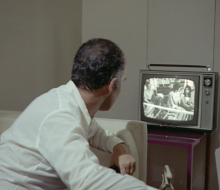
An Investigative Cinema (Book)

-
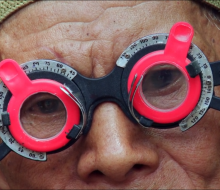
Joshua Oppenheimer’s Cold War Between Thought and Expression

-
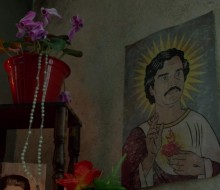
Too Strange to Believe: Magical Realism and Cold War Politics in Narcos

-

The Aesthetics of the Procedural in Post-9/11 Cinema (Cinema Journal)

-

Shifting the Present: Francesco Rosi’s Salvatore Giuliano (Chronica Mundi)

-

In and Out of the Jungle: The Politics of Gael García Bernal (SCMS 2016)

-

The Cinema of Ettore Scola (International Symposium at Casa Artom; Venice)

-
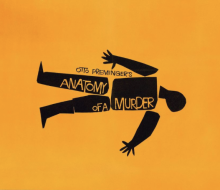
Just Imagine: Genre and the Logic of Movie Posters (Invited Talk)

-
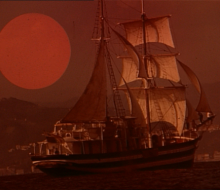
Evening Rituals: Marco Ferreri’s Dillinger is Dead (Intersections Conference; Florence)

-

Contemporary Science Fiction Cinema — Two Special Dossiers for Film Matters 8.3 & 9.1

-
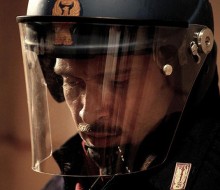
Network Narrative in Diaz. Don’t Clean Up This Blood (Harvard, ACLA 2016)

-

What Julian Smith Hates (and Loves) About Facebook: Social Media Parody as Self-Promotion (Comedy Studies)

-

The Moro Affair in Gian Maria Volonté’s Movies (Book Chapter)

-
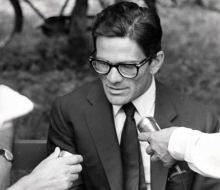
The Interview as Self-criticism: on Pasolini’s Metatelevisual and Extracinematographic Performativity (Book Chapter)

-
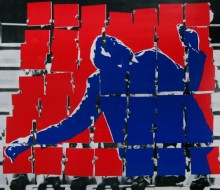
The Ontology of Replay: The Zapruder Video and American Conspiracy Films (Teorija in praksa)

-
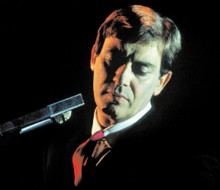
The Missed Encounter with the Actor-Poet: Carmelo Bene and Vittorio Bodini According to Ruggero Jacobbi (California Italian Studies)

-

One Hundred Steps & the Neorealist Heritage (Book Chapter)

-

Even the Rain: A Confluence of Cinematic and Historical Temporalities (The Arizona Journal of Hispanic Cultural Studies)

-
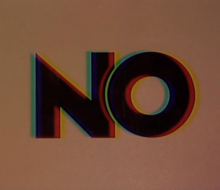
Pablo Larraín’s No and the Aesthetics of Television (Seismopolite)

-

Saviano, Garrone, Gomorrah: Neorealism and Noir in the Land of the Camorra (Fast Capitalism)

-
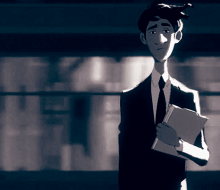
Conferences

-
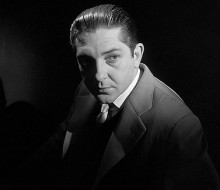
Theater According to Ruggero Jacobbi

-
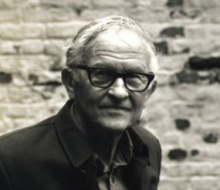
A Conversation with Albert Maysles

-
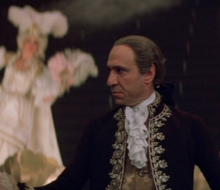
Rock me Amadeus: The Mozart-Salieri Conflict in Drama & Film

-
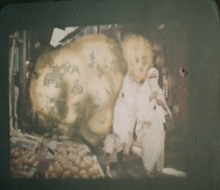
A Certain Absence in French Cinema

-

Cinemablography: Laughter as a Menacing Motif in Paul Thomas Anderson’s The Master

-
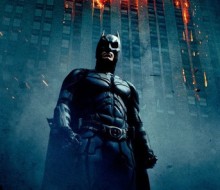
Cinemablography | A Legacy Intertwined: Christopher Nolan and his Dark Knight

-
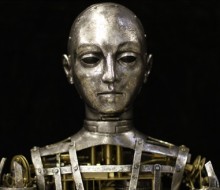
Cinemablography | Hugo: Nostalgia for the Origins of Cinema

-

Palace, A Short Film

-

Dragoon Online

-

Pioneering YouTube

-

Genetic Ancestry Project

-
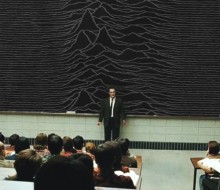
Teaching

-

Science Fiction Cinema

-

Short Story from Borges to HTML

-

Eremo Zafer (Poetry)

-
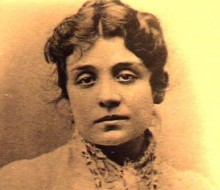
Adagio Domestico (Crocetti Editore)

-

Somewhere Else (Poetry Book)

-
Clients


